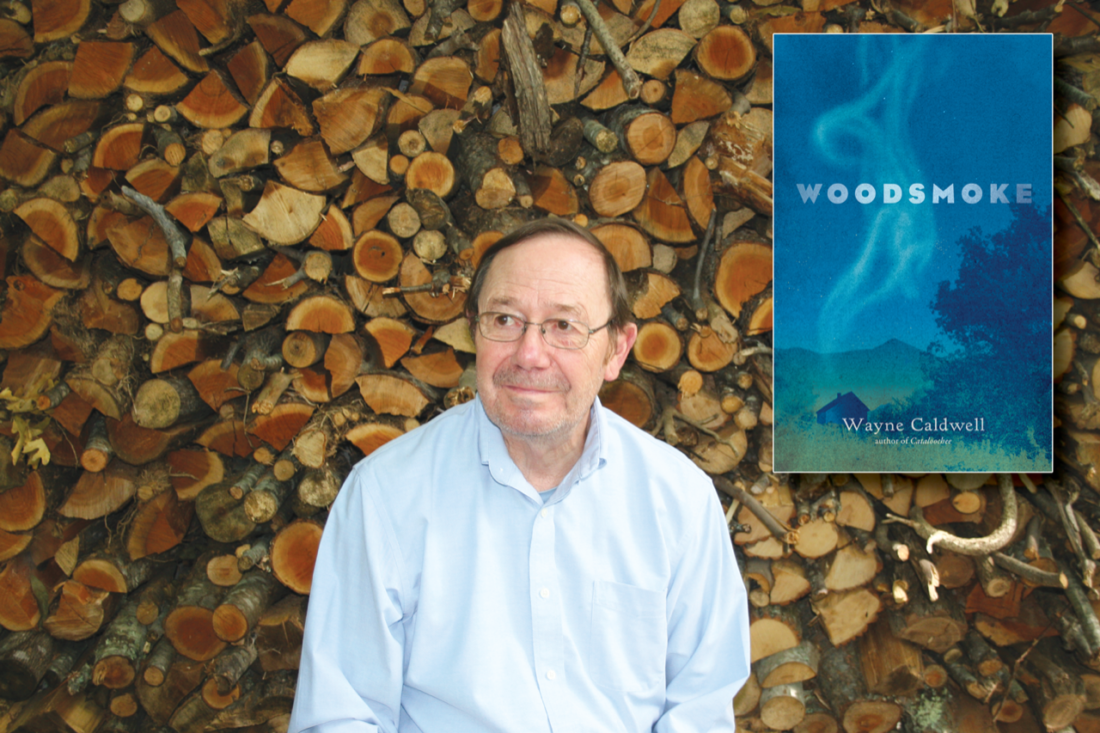Local author Wayne Caldwell did not anticipate publishing a book of poetry. But several years ago, while working on a novel, a voice emerged inside his head. “I’ve heard writers talk about characters taking over their minds,” he says. “I always thought it was like mental illness, and I suppose it is in a way.”
Despite his initial concern, Caldwell tolerated the unexpected guest, whom he later named Posey Green. At first, the author’s embrace was more out of necessity than choice. He simply could not shut Posey up. “He came walking in and said, ‘You don’t need to be working on this [book] anymore — you need to be listening to me!’”
Eventually, Caldwell grew fond of his loquacious, imaginary muse. “He says some fairly important things about nature, and our relationships to other people and God,” the writer notes.
Once Caldwell realized this, he put aside his novel and began writing down Posey’s observations.
On Tuesday, Feb. 23, Caldwell will celebrate the release of his debut poetry collection, Woodsmoke. Fellow WNC author Ron Rash will join Caldwell on Wednesday, Feb. 24, at 6 p.m. for a virtual discussion about the work, hosted by Malaprop’s Bookstore/Café.
Smack on top
Even with the upcoming publication, Posey continues telling Caldwell stories. “He’s still talking to me a little bit,” the writer admits. “There may be another Woodsmoke volume.”
But for now, 67 interlinked poems introduce readers to Posey’s inner thoughts and outer personality, as he ruminates on his life, nature and all the types of wood one might chop for the stove. Set in 1988, under the shadow of Mount Pisgah, readers follow Posey — an octogenarian recluse — through the four seasons.
Not surprisingly, with eight decades behind him, Posey has observed many changes within his community, family and natural surroundings. Often humorous and irreverent, he recalls several of these transformations within the collection’s slim but powerful 81 pages.
For instance, in the opening piece, “Pisgah,” Posey laments the installation of a television tower atop the peak, declaring:
“They put a dern TV tower smack on top in ’54,
Sticking up there blinking red of a night like a whorehouse sign
Just so we could watch Mister Bill’s Magic Bus.”
Like a man with a sawed-off limb
But Caldwell doesn’t overindulge Posey’s wit, offering readers just as many poignant moments as deep laughs. This is primarily achieved through the widower’s recollections of his deceased wife, Birdie. Though Posey’s undying love is evident, Caldwell never allows the character’s musings to turn saccharine. When Posey reveals to readers that he still misses his wife, he immediately follows the declaration with “Like a man with a sawed-off limb.”
In a similar fashion, Posey’s connection to the natural world comes up regularly in the work. Caldwell’s talent as a writer is perhaps best exhibited here, as he addresses dire environmental concerns without being preachy. Furthermore, these same issues serve to reveal additional insights into Posey’s thoughts about his own life and inevitable death.
For example, at the end of the poem “May Fourteenth,” the widower mourns for bygone years when lightning bugs swarmed in large numbers to light up the May sky. But by 1988, he notes, the glow isn’t nearly as bright. The dull reality troubles Posey, who observes:
“When we run slap out of the lightning bugs
We’ll have flat run out of hope.”
What the world needs
Despite Posey’s foreboding, the collection is ultimately a celebration of friendship and hope. In an early piece, Caldwell introduces readers to Susan McFalls, a writer 30 years Posey’s junior, who has purchased the house above the recluse’s property — a home previously owned by Posey’s distant relatives and one that sat empty for decades.
Unaccustomed to neighbors, Posey isn’t initially pleased with the new arrangement. But over time, the two develop a deep appreciation for and reliance on each other. This budding, platonic relationship ultimately weaves together the collection’s poems and establishes Woodsmoke’s optimistic tone.
Susan’s outlook and influence are established within the characters’ first meeting, which Caldwell depicts in the poem “Neighbor.” Learning that she’s a poet, Posey asks if she makes any money off her works.
Susan laughs. “Of course not.”
“Then why?” Posey presses.
“Beauty, Posey,” Susan answers. “The world needs it.”
Wayne Caldwell discusses Woodsmoke with Ron Rash in a free, online event. To register, visit avl.mx/8yr.




Calling our local bookstore to see if they will have it!!😀